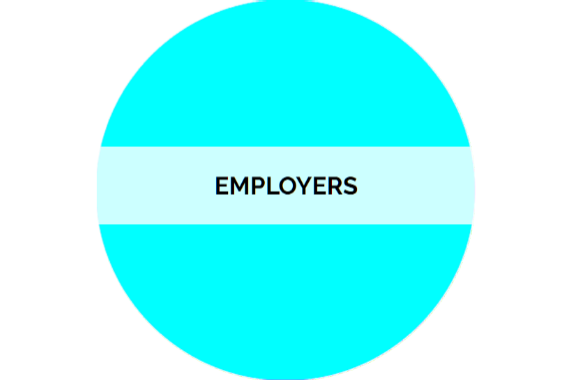Loss of wages
- The employer has the right to receive loss of wages compensation under the Sickness Insurance Ordinance for his employee, if:
- The employee is sick due to illness for more than three (3) days and is unable to perform his/her duties.
- The illness was confirmed by the Control Doctor of SZV by signing the Yellow Card.
Please note:
- If the period of illness is three (3) days or less, the employer has no right to receive a loss of wages compensation. In other words, only if the period of illness is longer than three (3) days, will the employer receive the loss of wages compensation (80% of the daily wages) from the first (1st) day of the period of illness.
- For the employer to be entitled to loss of wages compensation, the Control Doctor of SZV must confirm the illness of an employee by signing the Yellow Card.
- The employer will lose his right to collect loss of wages, if he has not submitted a written request for loss of wages to which he is entitled to, within two years that the loss of wages becomes payable.
- The employer has the right to receive loss of wages compensation under the Accident Insurance Ordinance for his employees if:
- The employee is unfit to perform his/her duties due to an accident on the job (“bedrijfsongeval”).
Please note:
- For the employer to be entitled to loss of wages compensation, the Control Doctor of SZV must confirm the disability of an employee by signing the Accident on the Job claim form.
- The employer will lose his right to collect loss of wages, if he has not submitted a written request for loss of wages to which he is entitled within two years of his right to the loss of wages becoming payable.
The duration of the loss of wages compensation under the Accident Insurance Ordinance is dependent on the report of the Control Doctor of SZV and will be paid in the following manner:
- 100% of the insured daily wages during the first (1st) year.
- 80% of the insured daily wages during the subsequent years, if the employee remains 100% unable to perform his/her duties due to the accident.
- In the event that the employee remains partially or completely permanent disabled, the employee will receive an accident insurance benefit in accordance with the occupational disability percentage.
This accident insurance benefit will be paid up to the maximum of the wage limit of the Sickness Insurance Ordinance. If an employee earns more than the maximum wage mentioned in the Sickness Insurance Ordinance, the insurance benefit is capped at this wage limit.
The procedure to request for loss of wages, is as follows:
- Accurately and completely fill out the loss of wages request form from SZV (this form is available via our website or can be picked up at SZV) or write your own letter requesting the loss of wages payment.
- Submit this form or the request letter to SZV.
- If approved, upon payment SZV will provide you with a detailed overview of all employees for whom the wage loss was calculated.
FAQ’s
What do I need to do if my employee is still sick with the same illness after 2 years and my company has lost the right to receive loss of wages for him/her based on the Sickness Insurance Ordinance?
You can no longer claim the loss of wages from SZV as the right to receive the loss of wages payment for the same illness has expired. This means that you as the employer will be responsible for paying out the wages to the employee from that moment onwards without getting compensated for it by SZV.
SZV advises you to visit the Labor Office or seek Legal advice to find out your options in these circumstances.
In case of an accident on the job (“bedrijfsongeval”), the duration of the loss of wages compensation to your employer depends on the report of the Control Doctor of SZV and the official decision taken by SZV based upon that report.
This accident insurance benefit will be paid up to the maximum of the wage limit of the Sickness Insurance Ordinance. If an employee earns more than the maximum wage mentioned in the Sickness Insurance Ordinance, the insurance benefit is capped at this wage limit.

